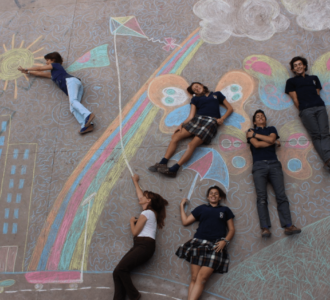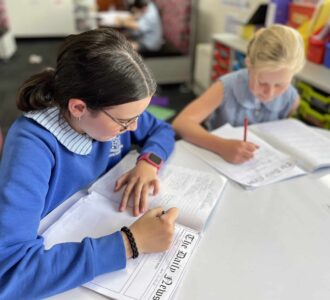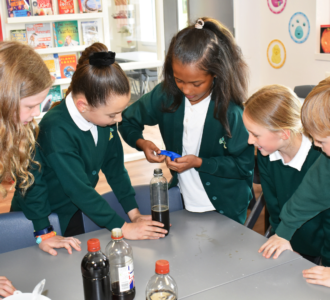As we mark the UN International Day of Peace today, it’s important to reflect on the role of education in fostering peace and unity. In today’s interconnected world, the classroom has evolved into a melting pot of cultures and ideas. From a London-based student exploring the intricacies of an Indian festival to online collaborations between peers across continents, the boundaries of traditional education are being redefined. This transformation transcends academic prowess, focusing on creating individuals deeply rooted in global awareness and committed to peace.
The digital revolution has reshaped our worldview. Instant access to information necessitates a profound understanding and embodiment of global citizenship. This piece explores the pivotal role of education in this journey, emphasising inclusivity, equity, and the indispensable influence of a positive school environment.
The evolution of global education
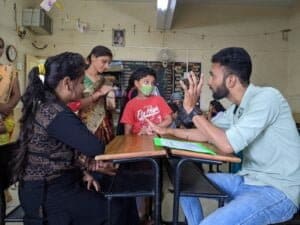
Historically, education was a reflection of local values, emphasising regional histories and cultures. But as the world grew closer, it became evident that students needed preparation for a globalised future. This change was more profound than merely updating the curriculum; it was about redefining educational values.
The technological boom, especially the rise of the internet, has been instrumental in this shift. Today’s students, digital natives, traverse a world where real-time interactions with international peers are the norm. This global exposure necessitates a dynamic adaptation of educational frameworks.
Embracing the global perspective
Being a global citizen is an intricate blend of geographical knowledge and understanding our world’s interwoven fabric. Such individuals are informed, compassionate, and proactive. They are voracious learners, challenging their preconceptions and embracing diverse viewpoints.
Cultivating global minds: The school culture imperative

A nurturing school environment is foundational to effective global citizenship education. In such schools, students, as well as staff, experience a sense of belonging, respect, and connection. They are encouraged to discuss global issues, share insights, and collaboratively seek solutions. This positive ambiance not only bolsters academic success but also instils the values vital for global citizenship.
A nurturing school environment is vital to effective global citizenship education. Schools like Zug International School, with its commitment to fostering international-mindedness, exemplify this. At Zug, students are encouraged to appreciate diverse cultures and perspectives, laying the groundwork for genuine global understanding. Similarly, Gort Community School has been proactive in integrating global perspectives into its curriculum, ensuring students are not only informed but also empathetic global citizens. Still I Rise International School stands out for its dedication to providing quality education to displaced children, underscoring the importance of inclusivity in global education.
The pillars of global citizenship education

In an age where our world is more interconnected than ever, we’re still grappling with challenges that threaten our collective peace and sustainability. Enter Global Citizenship Education (GCED), UNESCO’s answer to these pressing issues. GCED isn’t just about imparting knowledge; it’s about moulding individuals, regardless of age, to recognise that the challenges we face are global in nature. It’s about empowering them to champion societies that are more peaceful, tolerant, inclusive, secure, and sustainable. At its core, GCED is about instilling values, attitudes, and behaviours that resonate with responsible global citizenship. It’s about fostering creativity, innovation, and a steadfast commitment to peace, human rights, and sustainable development.
The foundation of GCED is deeply rooted in UNESCO’s Constitution, which aspires to ‘build peace in the minds of men and women.’ It’s a vision that aligns with the Universal Declaration of Human Rights and the Education 2030 Agenda. The goal is clear: to ensure that learners are equipped with the tools they need to navigate our complex world, to understand the interconnectedness of our challenges, and to take meaningful action. It’s about moving beyond passive learning to active global citizenship. And in this journey, UNESCO collaborates with a vast global network, including institutes, UNagencies, and inter-governmental organisations, all working towards the shared goal of global citizenship education.
Action beyond awareness
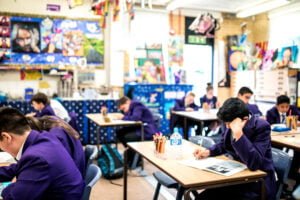
Awareness is the first step, but it’s not the endgame. True change comes from action, from moving beyond understanding an issue to actively addressing it. Global Citizenship Education (GCED) is more than just a curriculum; it’s a call to action. It challenges learners to not only understand global issues but to become active promoters of societies that are more peaceful, tolerant, inclusive, secure, and sustainable. It’s about recognising that the challenges we face, from human rights violations to poverty, are global in nature. And the solutions? They require collective action.
UNESCO’s work in GCED is a testament to the power of education to drive change. By focusing on values, attitudes, and behaviours, GCED empowers individuals to take meaningful action in their communities and beyond. It’s not just about understanding the world; it’s about changing it. And this change starts with education. Through special themes like preventing violent extremism through education and promoting the rule of law through global citizenship education, UNESCO is paving the way for a more just and peaceful world. But it’s not a journey they’re taking alone. With collaborations spanning across institutes, UN agencies, and organisations, the message is clear: together, we can move from awareness to action. [Discover more about UNESCO’s initiatives].
Global citizenship in action: The IB experience

The International Baccalaureate (IB) stands as a testament to the power of education in fostering global citizenship. With its four high-quality international education programmes, the IB reaches over one million students across 146 countries, emphasising the development of caring, culturally aware individuals who are active participants in their own learning journey. The Primary Years Programme, for instance, marks the beginning of this journey, nurturing children aged 3-12 to be culturally sensitive and active learners. Similarly, the Middle Years Programme builds a solid academic foundation while encouraging students to make connections between classroom learning and the real world, thereby instilling a sense of global awareness and responsibility.
Furthermore, the IB’s collaboration with various global entities, such as its recent partnership with the Lebanese Ministry of Education, showcases its commitment to promoting global citizenship through inclusive and equitable education. The programme’s ethos resonates with the idea that all schools worldwide face similar challenges and benefits, emphasising the interconnectedness of the global education community. As John Nicholls from the Bilingual European School in Italy aptly puts it, “The beauty of the IB is that it’s a global education community.” This sentiment captures the essence of the IB’s mission: to develop well-rounded, caring, knowledgeable, and self-motivated students who are equipped to navigate the complexities of our interconnected world.
Blueprint for a global classroom
Having established the significance of global citizenship education and the need for action beyond mere awareness, let’s explore a simple blueprint that turns conventional classrooms into epicentres of global understanding and proactive engagement.
- World issues in the spotlight: Seamlessly integrate global concerns, from environmental to socio-economic, into the curriculum.
- Experience cultural diversity: Champion cultural exchange programmes for firsthand exposure to global perspectives.
- Empower through participation: Encourage debates, discussions, and events centred on global challenges.
- Foster a nurturing environment: Prioritise a positive school ambiance where students are motivated to engage in global dialogues.
Charting the path forward
Education is society’s bedrock, moulding minds and futures. As we navigate the confluence of globalisation and technology, education’s role in shaping global citizens becomes paramount. By advocating global citizenship and nurturing a positive school culture, we prepare students for a globalised world’s challenges, fostering unity, empathy, and collective responsibility.
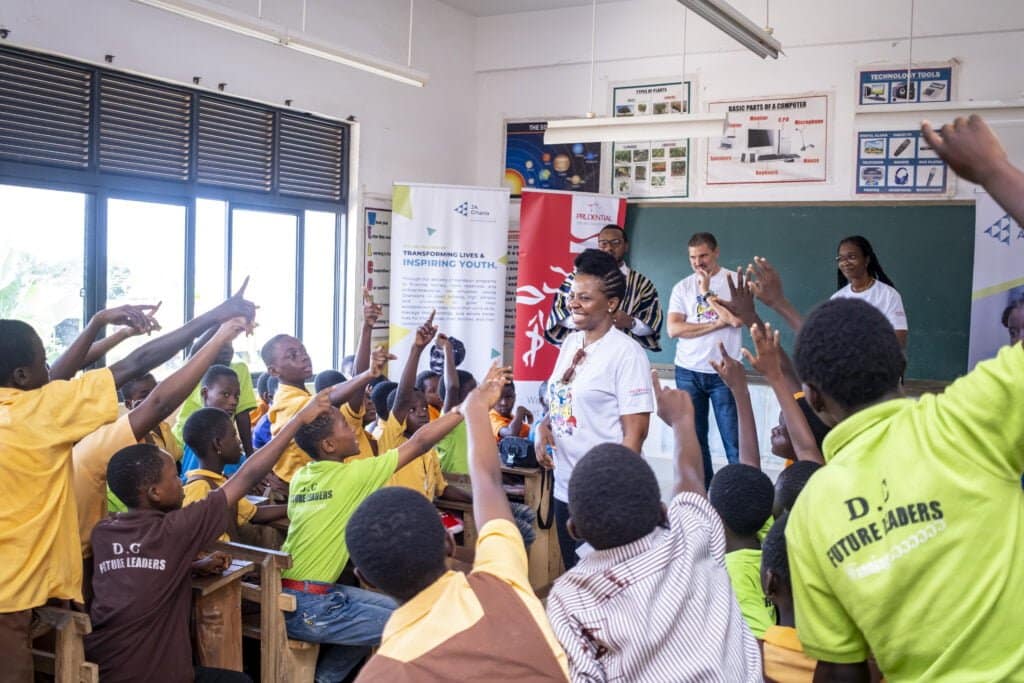
The quest to embed global citizenship in education is ongoing, but the progress is commendable. As stakeholders in education’s future, our shared duty is to ensure every learner is primed to be a genuine global citizen.
Further reading:
- UNESCO’s Vision on Global Citizenship Education
- Diving Deep into the International Baccalaureate Programme
- World Economic Forum’s Insight on the Future of Education

